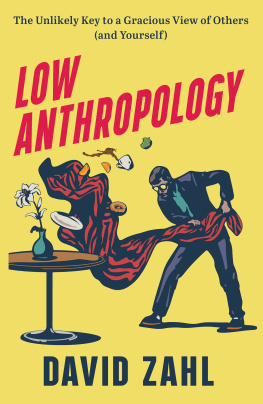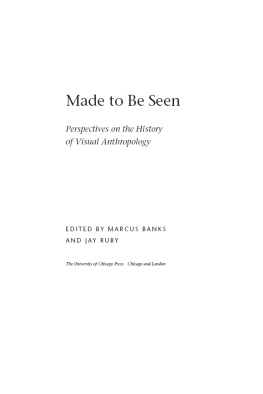Perspectives in U.S. Marxist Anthropology
About the Book and Editors
An assessment of current trends in Marxist anthropology, this collection of essays reflects both the unifying force of Marxist thought and the diversity of contemporary anthropology. Linked by a common approacha shared commitment to Marxist analysisthe contributors look at a variety of phenomena, including the problems of labor and work, in terms of a coherent theory of Marxism. Examining political, economic, and ethnic situations, the authors discuss social structures, ideology, and class formation. This unique volume warrants the attention of both Marxists and non-Marxists in anthropology and of scholars in other fields.
David Hakken is chair of the Council for Marxist Anthropology and associate professor of anthropology, SUNY-College of Technology. Hanna Lessinger is a member of the Council for Marxist Anthropology and research associate at the Southern Asian Institute, Columbia University.
Perspectives in U.S. Marxist Anthropology
edited by
David Hakken and Hanna Lessinger
Published in cooperation with the Council for Marxist Anthropology
First published 1987 by Westview Press
Published 2019 by Routledge
52 Vanderbilt Avenue, New York, NY 10017
2 Park Square, Milton Park, Abingdon, Oxon OX14 4RN
Routledge is an imprint of the Taylor & Francis Group, an informa business
Copyright 1987 by Taylor & Francis
All rights reserved. No part of this book may be reprinted or reproduced or utilised in any form or by any electronic, mechanical, or other means, now known or hereafter invented, including photocopying and recording, or in any information storage or retrieval system, without permission in writing from the publishers.
Notice:
Product or corporate names may be trademarks or registered trademarks, and are used only for identification and explanation without intent to infringe.
Library of Congress Catalog Card Number: 87-50604
ISBN 13: 978-0-367-28269-1 (hbk)
In Loving Memory of Eleanor Leacock 1922-1987
For Happy
Contents
Perspectives in U.S. Marxist Anthropology
Hanna Lessinger and David Hakken
The Present Moment in Marxist Anthropology
The volume which lies before you presents current work from within a trend of Marxist anthropology now maturing in the United States. In this introduction the editors present their assessment of this important work and what we see as its origins. While placing the selections in historical and organizational context, we point out impediments which still limit the contributions of Marxist anthropology. We conclude by identifying what we think are the distinctive characteristics of this trend and by pointing to its unfinished tasks.
Such an assessment is desirable at this time for a number of reasons. First, we feel that the quality of U.S. Marxist anthropology, manifest in the articles included here as well as evident in much other work, has reached such a level that it warrants the serious attention of both Marxists in other fields and of non-Marxists in anthropology. Secondly, we feel it is imperative right now to encourage development of a common language and a shared sense of problem among our Marxist anthropological colleagues. In order to understand why we feel this way, we need to consider the various contexts within which this volume has developed.
This current Marxist tendency in U.S. anthropology springs from a combination of intellectual, political and disciplinary developments, a confluence of events which has touched most academic fields over the past two decades. The present shift to the right in U.S. cultural and political life has coincided with organizational and intellectual crises within anthropology.
The root of these crises is the present marginalization of the field of anthropology during a period of global capitalist expansion. Anthropology, once deeply involved in the imperial enterprise, is now increasingly marginal or irrelevant to it--largely because of the discipline's liberal (and at times leftist) traditions. This apparent paradox exists because, alongside the field's sporadic involvement in both the ideology and practice of imperialism, working anthropologists have also had the bad habit of sympathizing with those they study. This identification with one's informants, who are often the powerless of the world, has made anthropology as a whole slightly more liberal than many other social sciences. Thus the general narrowing of both economic and ideological possibilities since the mid-1970s has meant that, alone of the social sciences, anthropology has failed to expand or to find non-academic jobs for its practitioners. People who seek to "reform" or "save" the discipline usually advocate the neutralization of anthropology's liberal thrust, and particularly the eradication of the leftist presence within the field. From this viewpoint (shared by the right and also by some liberals), Marxists are, and deserve to be, peripheral to anthropology. We, on the other hand, see Marxism as central to the rejuvenation of the discipline. We feel that dialectical materialism, an understanding of the labor theory of value and a vision of intellectuals' proper role in class struggle allow us to understand what is happening in the world around us. Marxism also gives us the hope that we can change that world.
One of the manifestations of crisis in anthropology has been the struggle over the proper object of anthropological study. For example, the writers in this volume, while often dealing with familiar ethnographic material, direct as much of their attention toward the state and the world capitalist system as they do to internal cultural dynamics. The question of broader analytical foci and wider economic and political contexts takes on particular urgency for U.S. anthropologists whose "own" state is bent on imposing an iniquitous system on the rest of the globe. Unlike many non-Marxist anthropologists, these writers find it impossible to ignore such relationships, and feel impelled to make them a major part of their analyses.
A further aspect of the crisis is the organizational struggle which has taken the form of debate within the discipline over the ethics of anthropological research. The debate flows, of course, from the crisis over what anthropology is, or should be. Many of the authors in this book have been part of a movement to defend the code of anthropological ethics adopted during the Vietnam war. In that code we are defending the discipline's humanistic tradition against those who would domesticate its critical thrust, who would like to de-politicize (or in the words of one hostile observer, "de-Vietnam-ize") anthropology, making it more acceptable to government and business. All of these debates are simply manifestations of a general underlying tension within U.S. higher educationa tension about the purposes of education and the class alliances of intellectuals. Is the purpose of higher education to serve capitalist accumulation or to expand the potential of the human race? If social science cannot be neutral, where do anthropologists align themselves? One of our aims in presenting this collection is to bring these debates, which have raged in an often subterranean fashion, into the open. In doing so we hope to sharpen them, to stake out identifiable Marxist positions in the debate, and in doing so to evaluate and advance these positions.












